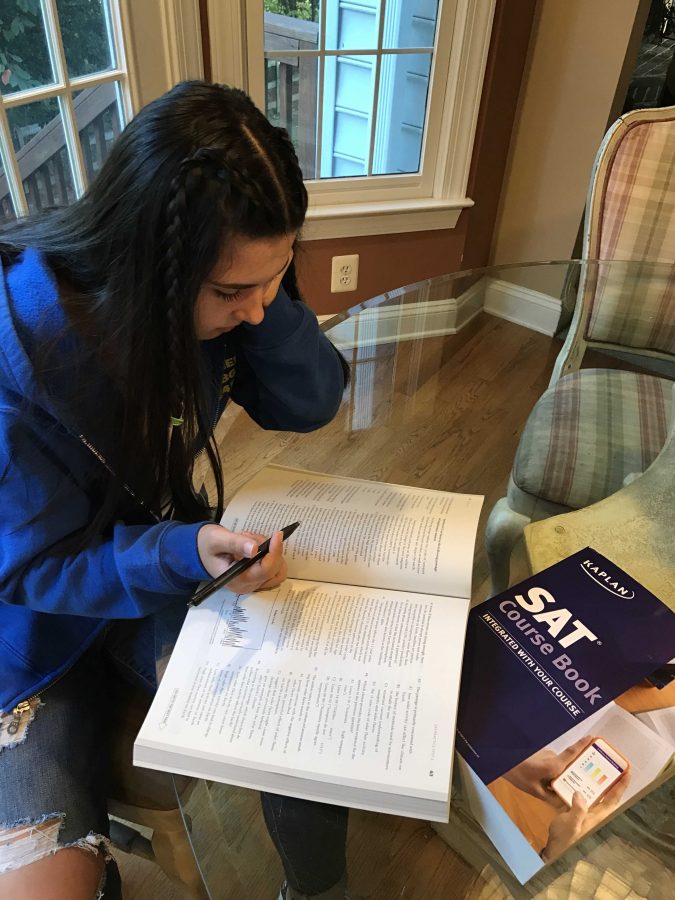One of the hardest and most challenging tasks a high school student must go through is tackling the demands of junior year. Junior year is extremely important as students begin taking the critical steps toward college.
In high school, students are encouraged to participate in clubs, sports and other activities outside of school. Junior year comes with more responsibilities and a large amount of work that these activities can conflict with. Students starting their junior year often partake in AP courses that require more work than an average student is used to.
Aside from the harder classes, this year involves taking the SAT and/or ACT exams. These examinations require preparation throughout the school year. To prepare for these tests, students can take in preparation classes, such as the Kaplan course, or get one-on-one tutoring. These courses provide material that will be mirrored on the actual test and will raise a student’s score with studying. The class targets one’s weaknesses and uses that to set the basis of their studying.
Other than these classes, other resources can be helpful. Junior Kyra Goldstein has taken an ACT and SAT practice test and has found that these mock exams help. “At first I wasn’t sure if I should take the SAT’s or the ACT’s, but after seeing what both tests will be like, I now know the differences between the two and this will help me make a decision,” Goldstein said.
One question students consider is when to start the process of SAT’s and ACT’s. While most students do not begin until their junior year, some find it helpful to start earlier. Senior Sean Lin has taken the SAT, but began studying for it his freshman year. Lin knew how stressful high school could be, so he thought by starting the process early he might make it easier. “I didn’t want to be too overwhelmed during my junior year of high school, so decided to start studying my freshman year to I could get a head start. This worked well for me because when it was time to start studying junior year, I was ahead of the game,” Lin said.
As former sophomores take their new roles as upper classmen, they are also encouraged to take AP classes. These college level courses are specifically designed to prepare students for what kind of learning techniques are used and the amount of work which will be expected in college courses. It is important to take these classes so students can get a glance at the level of work that will be required for them in the upcoming years, but it is also important to balance the level of classes one takes.
Junior Meredith Halperin has examined the difference between AP classes and other classes, which has informed her view on the classes. “Students should take classes that challenge them, but they shouldn’t overwhelm themselves with too many AP classes that add unneeded stress to their junior year,” Halperin said.
Hannah Shapiro
Features Editor








![Editors-in-Chief Ahmed Ibrahim, Helen Manolis, Cameron Cowen, Alex Grainger, Emory Scofield, Hayley Gottesman, Rebekah Buchman and Marley Hoffman create the first print magazine of the year during the October press days. “Only a quarter of the schools in MCPS have programs that are like ours, a thriving, robust program. That makes me really sad. This is not just good for [the student journalists] to be doing this, it’s good for the entire community. What [student journalists] provide to the community is a faith in journalism and that continues for their lifetimes," Starr said.](https://woottoncommonsense.com/wp-content/uploads/2025/10/wmpoFTZkCPiVA3YXA4tnGoSsZ4KmnKYBIfr18p3l-900x1200.jpg)